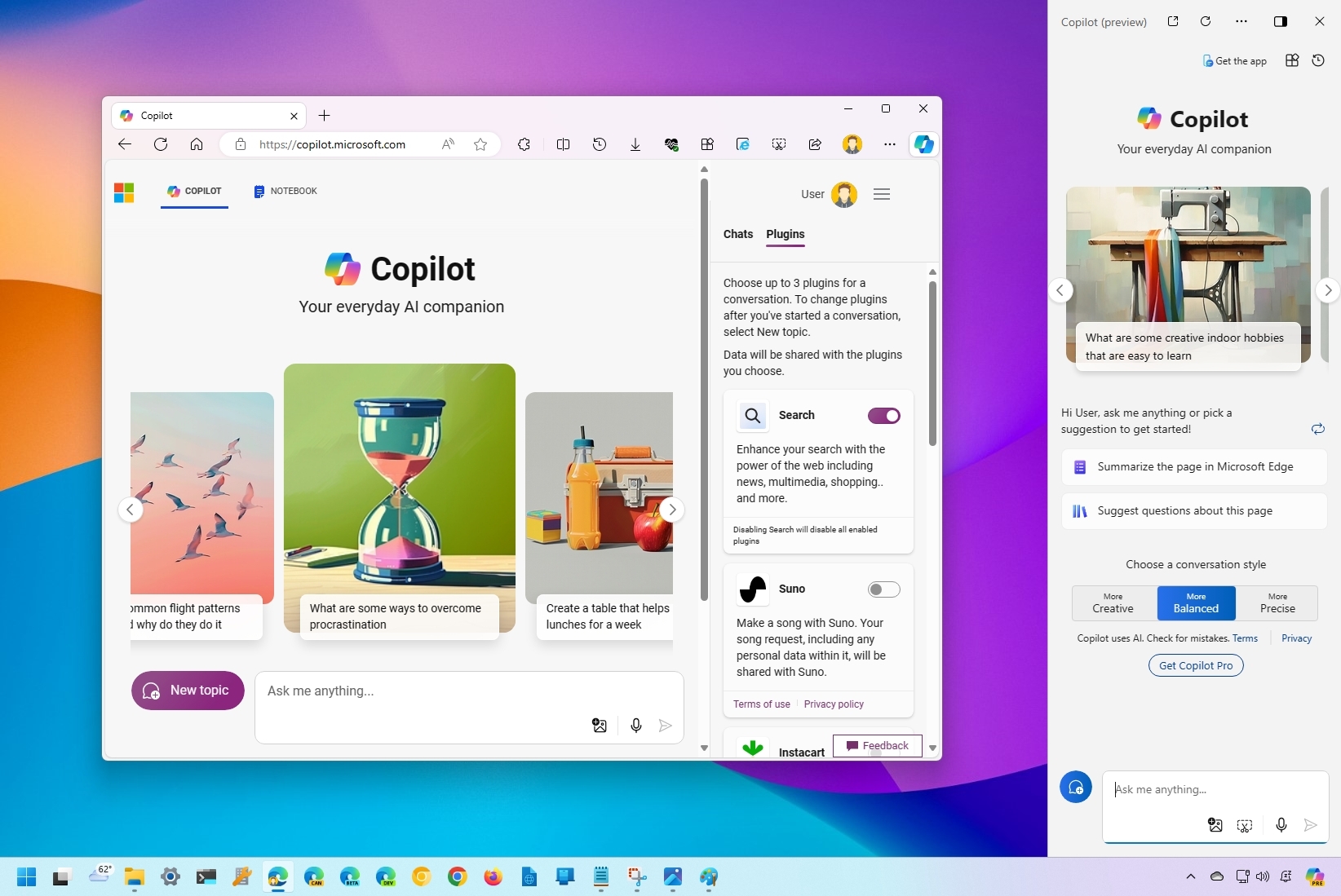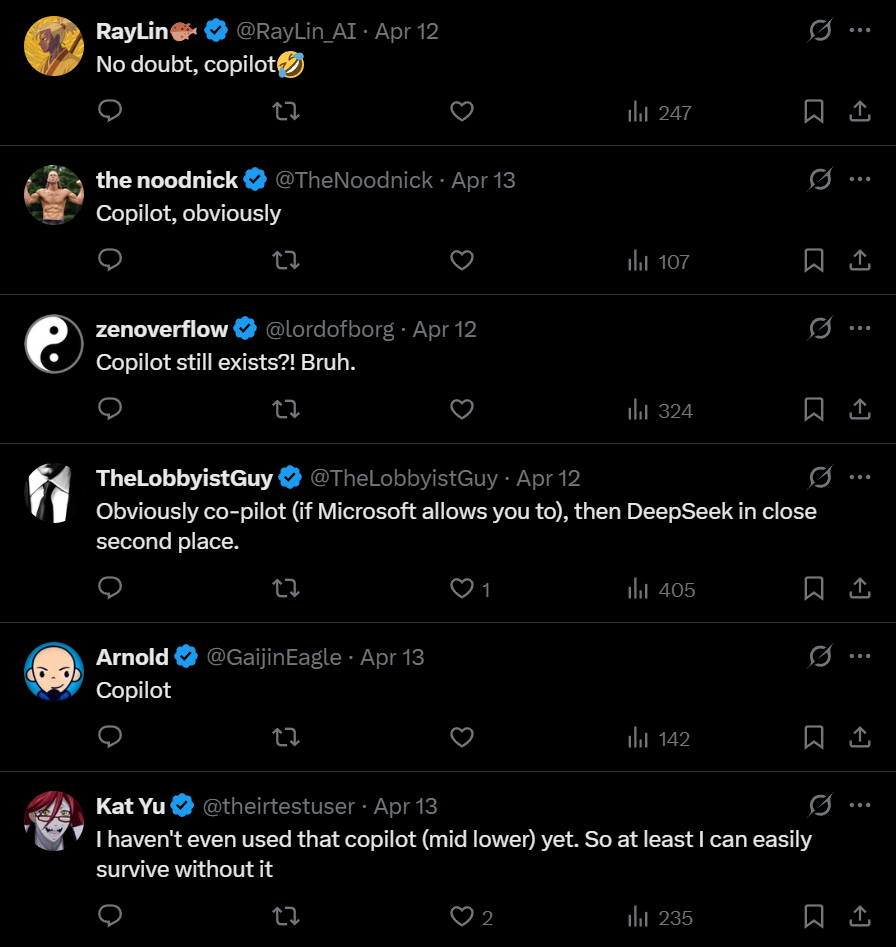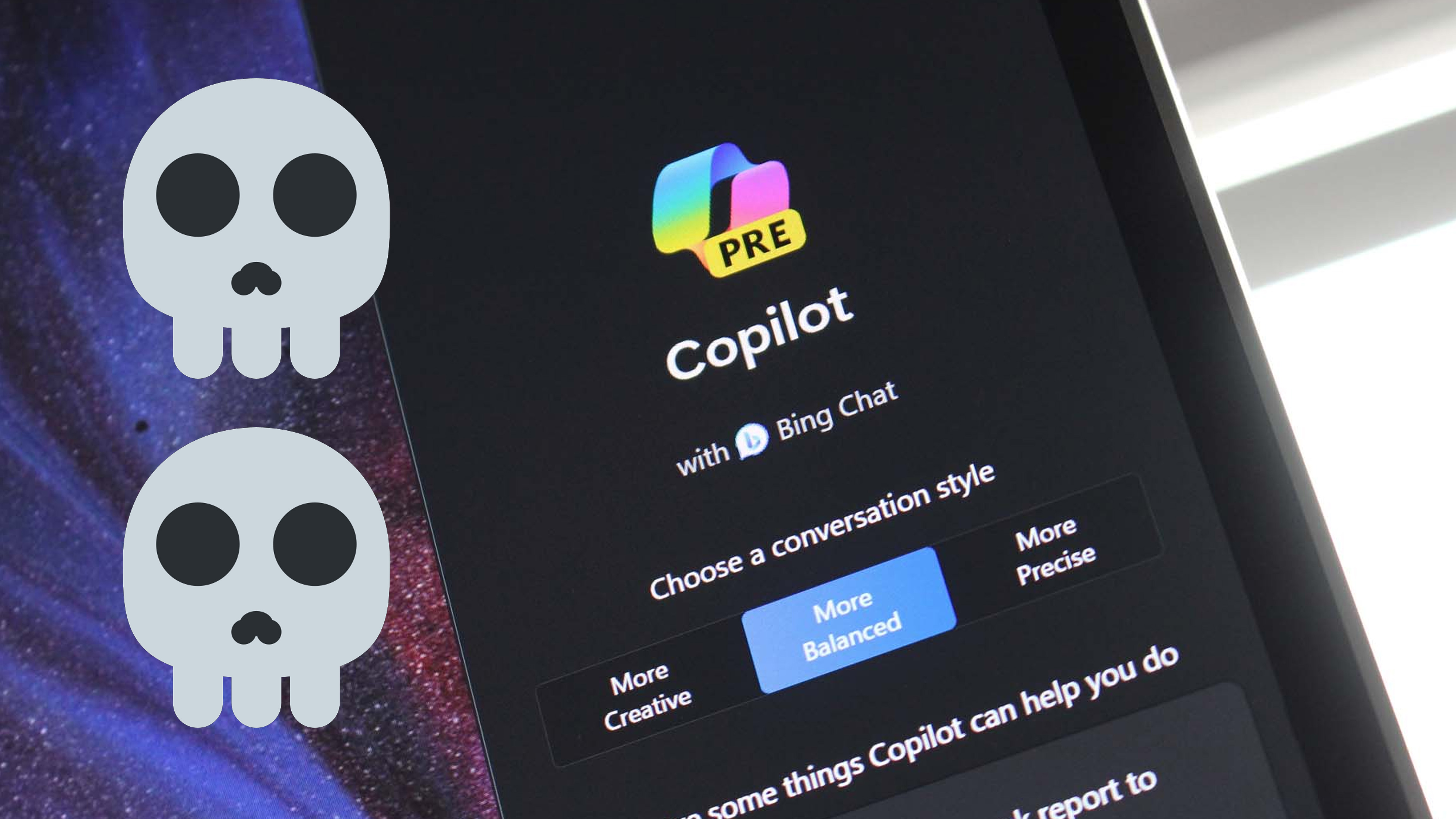Copilot hasn’t had an easy life. Since its inception as Bing Chat in 2023, the AI tool has taken many twists and turns to get to where it is today. For the most part, Microsoft hasn’t had a clear vision for Copilot, constantly changing strategy, adding and removing features, and redesigning its UI almost half a dozen times in just a couple of years.
When Copilot first launched as Bing Chat, it garnered much attention. For a short while, it was a better version of ChatGPT, based on the same AI models but with access to the Internet for more up-to-date answers and results, which was a game-changer at the time.
Of course, OpenAI and its rivals eventually caught up by offering the same kind of internet access, so Bing Chat no longer had an edge in that department. It’s clear that interest quickly waned from there, and it wasn’t long before Microsoft moved to relaunch Bing Chat under a new name, Copilot.
At first, it was an extensible platform with support for plugins, which allowed Copilot to access third-party apps and services. It was also a competent Windows assistant, capable of configuring system settings like Bluetooth and Dark Mode when asked.
It also supported different conversation styles, letting users choose what kind of response they wanted to receive. This was an excellent feature for those using Copilot as a tool to assist them with code or data management, as many were. It had become a great, free tool for power users and technology enthusiasts.
But as time has progressed, Copilot has lost a lot of this functionality, and I think that’s because Microsoft has chosen to take Copilot down a completely different path. It’s no longer interested in appealing to AI enthusiasts and power users; instead, it wants Copilot to appeal to the masses.
Microsoft knows your Grandma is never going to use ChatGPT, Gemini, or DeepSeek, but it reckons she might use Copilot, if the service is simple and easy enough to use. In the last half a year, we’ve seen Microsoft reposition Copilot as your “AI friend”, not an “AI tool” like so many other AI services are.
Suleyman’s Copilot
This attempt to reposition Copilot began shortly after Mustafa Suleyman took over as CEO of AI at Microsoft. Since then, we’ve seen the company talk about Copilot like a digital friend, marketing it as something you’ll want to talk to about your day, relationships, feelings, emotions, and more.
When the new Copilot experience launched last year, many users immediately noticed a regression in features and capabilities. Users even noted that Copilot’s responses were now less in-depth and technical than before, which caused many power users to jump ship to ChatGPT.
Microsoft has since added a “Think Deeper” mode to Copilot to help address this, but it appears the competition still has Copilot beat when it comes to technical and in-depth analysis and responses.
I recently came across a tweet asking people which AI service they’d want to delete from existence. The majority of responses were for Copilot to be deleted, citing that both ChatGPT and Copilot don’t need to exist together, as Copilot is based on ChatGPT technology and is perceived to have worse responses.
In the eyes of AI enthusiasts, Copilot doesn’t offer anything unique that makes it worth using over the competition. Of course, that’s only true in regard to the AI model that powers it under the hood. Surface-level, Copilot is often the first to offer new, real-world experiences and capabilities powered by AI.
Features like Copilot Vision for Windows and Edge, which lets Copilot view your screen and help out with suggestions or tutorials while you work. The same goes for things like Copilot Memories, which lets Copilot build a profile about you and remember who you are while you chat with it.
While other AI services are attempting to bring similar features to market, Copilot is often doing it first. Microsoft is pushing ahead with building features that enrich Copilot as a service and entity, and is putting much less emphasis on the magic that powers things under the hood.
This shift in focus is a clear attempt to appeal to a more general population, and is less interested in catering to AI enthusiasts who just want to utilize Copilot as a tool for access to the latest LLMs. But I’m not convinced Microsoft is executing this shift correctly.
Realistically, I don’t think society is ready to embrace an AI friend like Microsoft is hoping we are. Perhaps I’m in the minority, but I don’t find value in talking with an AI about anything personal in my spare time. I use it as a tool to assist me in tasks, and if anything, I want to talk to AIs less.
My ideal AI is one that understands my intent without me needing to ask for it first. I simply don’t want to spend any time typing out or speaking commands for it to do anything useful. It should be working for me automatically in the background at all times.
No AI assistant is capable of this, at least not yet. Microsoft is, in my opinion, taking Copilot in the wrong direction. It should be working to make Copilot more invisible, not more openly present and personal. I don’t value an AI friend, but I do value an AI tool.
Ideally, Copilot should be an AI experience that is woven throughout the Windows OS, not an app that sits on top of the OS that I have to go to, to do anything with. It should be ubiquitous and automatic, with the ability for me to guide it if necessary.
Microsoft is uniquely positioned to realize this. OpenAI doesn’t have an OS platform like Microsoft does, so ChatGPT can’t be ubiquitous like Copilot could be. Hopefully, that’s the end goal, as I believe that’s the best way AI can appeal to the masses, and the only way Copilot is going to succeed.








